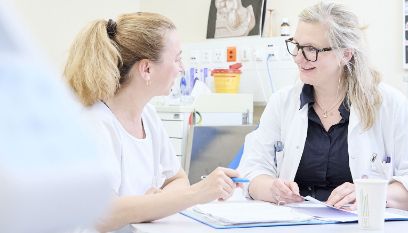Focus areas
The degree programme Master of Science in Midwifery consists of five module groups: profession-specific, research, interprofessional, transfer and the master’s thesis. We pay particular attention to the close relationship between theory and practice. The guiding principle of this degree programme is networking with other students and professionals in related fields.
What you will gain from your degree
With an MSc in Midwifery, you will draw on the latest research and your own extensive knowledge in advising women and families. You will skilfully integrate such topics as migration, poverty and domestic conflict into your practice and ensure the best possible care for your patients and their families.
In modules on ethics, health economics or advanced practice, you will gain a nuanced understanding of healthcare. Research and practice receive equal weight. Upon completion of your master’s programme, you will be equipped to plan, design and lead complex care situations on your own.











